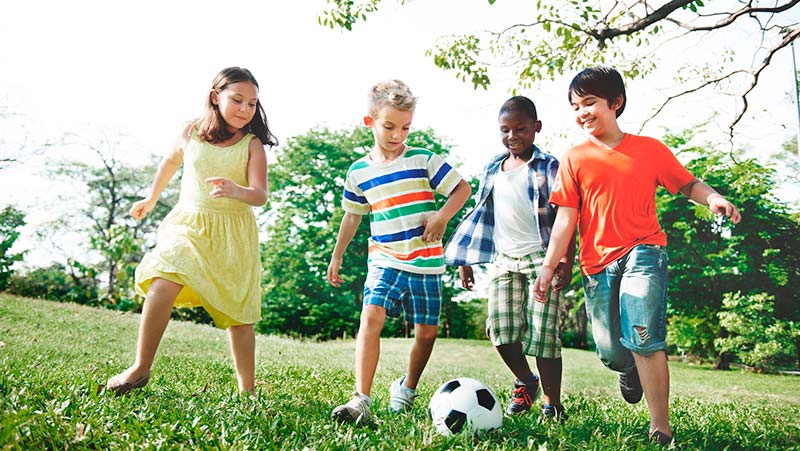At Right Start Inc we know that there are many ways to support exercise for individuals with autism so they’re able to safely and successfully step into the world of sport.
Physical exercise has a lot of health benefits; essentially as it enhances physical and emotional well-being, boosts self-esteem and helps improve social skills.
At first glance, sports may not seem like the best environment or activity that a child with Autism Spectrum Disorder (ASD) should participate in.
The potencial tough crowds, possible physicality and needed the mandatory communication that comes with being on a team are all possible stressors for a child with ASD. These negatives can also potentially be turned into a positive though!
It’s useful to know that regular exercise has many benefits and has been shown to decrease self-stimulatory behaviors such as hyperactivity, self-destructiveness and aggression.
Sport also has the additional benefits of improving social skill through relationship building with teammates, listening skills and increasing children’s attention spans.
Bringing the fun factor into sport makes it less daunting. Engaging in arts and crafts, life skills games or playing with their favorite sensory toys, are all activities that help to nurture both physical coordination and social skills in the home environment.
It is a good idea to gradually build confidence through activities organized by clubs that are more inclusive and accommodating to the needs of children with Autism.
We know that choosing a great extracurricular activity can sometimes be an overwhelming task. We have put together “The 5 C’s” that can help your child with autism succeed in a sports program.
Communication:
It is important that your child’s interest, abilities, and strengths are considered upon choosing the sport. As a parent, one can only want what is best for their child. A suggestion would be to try to communicate clearly with your child by setting realistic expectations to try and really understand their perspective.
Choosing a sport that will allow your child to successfully participate and excel might help alleviate the anxiety of trying something new. It will also foster and promote independence and self-confidence.
For example, does your child love animals? Maybe horseback riding would be an appropriate choice. Transparency in getting your child to communicate his or her preferences is a great start to finding the right sport for your child.
Consideration:
Does your child have sensory sensitivity? If your child is sensitive to loud noises, then a sport with irregular whistling, such as volleyball, might not be ideal. If your child has an aversion to fresh cut grass then baseball might not be the best choice.
It is important to consider the environment of each sport for the purposes of avoiding extra challenges that might prevent your child from successfully participating and enjoying the activity.
After all, playing a sport should be a fun experience–not a stressful one. If you are unsure, try going with your child to watch the sport before making a commitment. Ask your child what he/she thinks about giving it a try while you’re both observing a given activity together.
Cooperation:
The ability to cooperate with others is key to a child’s success. Parents should make a concerted effort to demonstrate this cooperation by partnering with coaches or instructors to get the best possible experience for their child.
At first, your child might not be able to do everything the other children can do. Working on too many points of detail at once, or spending too much time on a given task may be overwhelming and cause frustration.
Talk to the coaches or instructors to see if skills and activities can be broken-down into smaller, more manageable sections, so your child can feel successful each time.
If it seems your child is frustrated or fatigued, ask the coach to allow for a short break and go with the child’s pace (if possible). In the early stages of playing a sport, it is important to gradually foster your child’s love for the game!
Connection:
If you want to go fast then go alone, but if you want to go far then go together. This African Proverb is a great example of how connecting with other parents who are experiencing the same difficulties can act as a great resource and support system.
Asking them about their experiences is a nice way to connect and have a dialogue for pressing questions that you may have for purposes of improving your child’s chances of succeeding in sports.
Compassion:
If initially it seems that your child has been making little progress, it is important to be positive and provide encouragement. Going the extra mile to help your child whenever possible and being compassionate is a must.
Spending the time at home to practice their skill or just being there for your child as a constant cheerleader will really make a difference.
In short, sports matter for a lot of people. Children with autism should not be robbed of the happiness and enjoyment that sports can bring into their lives, given the appropriate approach.

